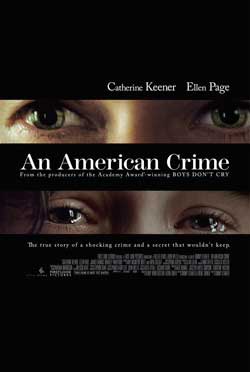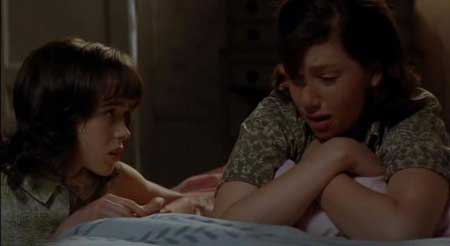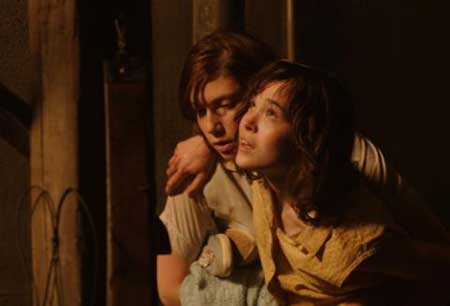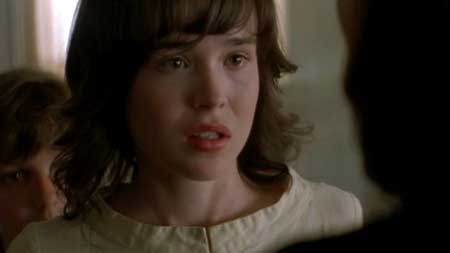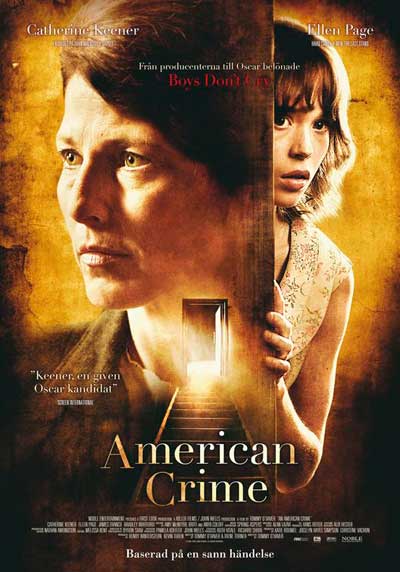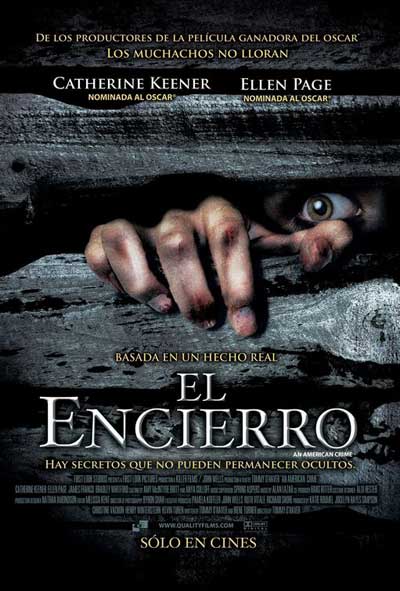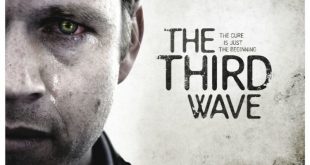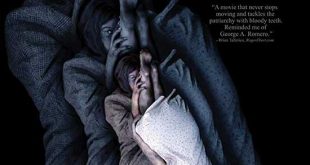SYNOPSIS:
While The Girl Next Door (2007) was based on Jack Ketchum’s novelized account of this horrifying true story, Tommy O’Haver’s An American Crime goes straight to the court transcripts to present its version of events.
The film opens with the 1965 court trial before inserting lengthy dramatised flashbacks to tell the story. The parents of Jenny and Sylvia Likens leave their two young girls with Gertrude Baniszewski (Catherine Keener) and her six children – total strangers – for over a month for twenty Dollars a week while they work at a travelling carnival. When Gerty’s eldest daughter, Paula (Ari Greynor), is violently attacked by her married boyfriend, Sylvia tells him that Paula is pregnant, simply as a way of stopping him from beating her. But Paula is infuriated at Sylvia for letting her secret out, and goes crying to her mum, making up malicious lies to get her into trouble. And so Gertrude sets about making life hell for little Sylvia.
REVIEW:
Directed by Tommy O’Haver
Starring: Ellen Page, Cathrine Keener
With the assistance of her children, Gertrude’s mounting frustrations – laced with guilt at being unable to cope with her own kids – are taken out on Sylvia in the form of nasty and vindictive punishments. The abuse escalates until she is eventually kept in the basement where she becomes a torture victim, not just for Gertrude and her children, but for other kids across the neighbourhood, too. Early on in the film we’re shown the story unfolding with the backdrop of 60s Americana, with the greased-back hair, old model cars, and girl group pop music, etc, and this warm nostalgic vibe is soon curtailed as the abuse becomes more sinister and dangerous. In addition to her financial woes and her boyfriend being shipped off to Vietnam, it soon becomes clear that Gertrude has severe mental problems. She whips the sisters with a belt when the cheque from their parents fails to arrive (it shows up in the mail later that day). It’s interesting how the Baniszewski’s go to church on Sunday like a decent pious family, and yet are capable of the most horrendous torture and humiliation on a defenseless young girl.
Gertrude’s warped ways of instilling ‘justice’, and her ways of teaching her kids right form wrong are just an excuse for her to vent out her own frustrations. It would be laughably pathetic if it wasn’t all so horribly true. This warped behaviour just has the effect of her own kids feeling free to do anything they please, and get into all kinds of trouble, knowing all they have to do to escape responsibility is blame Sylvia. And this has a snowball effect – Gertrude’s kids can no longer do any wrong in her eyes, and all of their faults and misbehaviours are connivingly linked back to Sylvia, a scapegoat for the unruly kids and Gertrude’s frustrated vagina. If someone slipped on a banana peel, this monster would find some way of blaming Sylvia for it.
Back in the 60s, physical punishment was much more commonplace than it is now, and parents would regularly beat and whip their children with belts, thinking it would do them good. And this kind of thing had other complications beyond the affects on the children; it also affects society at large. And this idea is hinted at in the scene where neighbours in the street can hear Sylvia’s cries coming from inside the Baniszewski household, but ignore it, assuming her to be a bad kid in need of discipline.
The children of the neighbourhood learn from Gertrude’s disgraceful behaviour when they keep Sylvia in the basement as their own little torture plaything. They beat and burn her with cigarettes, and dare each other to join in. Interestingly, the kids play along as though their actions are justified – the girl deserves punishment because momma said so. And the cycle of abuse continues. In court, none of the children can account for their behaviour – Mother’s authority allowed them to act in the way they did, and that’s all the encouragement they needed. And when asked why these little foot soldiers joined in the torture, they all drop their heads in shame and say “I don’t know, Sir”. With the right kind of influence, children can be led into partaking in any activity, good or bad (just think of Hitler’s Nazi Youth, where youngsters got so carried away in their induction into the ideas of National Socialism, that many even denounced their own parents as traitors and enemies of the State if they said anything bad about Hitler or the Third Reich). Even the young lad Ricky, who fancies Sylvia, is roped into torturing her. Such is the ghastly spell Gertrude had on the kids around her. These children whose minds hadn’t developed enough to see through to the root of what was happening in their midst.
Sylvia eventually dies of her injuries. In court, we see denial at work as Gertrude tries to deflect responsibility and calls her children liars when they testify against her. This is a woman who carved the words “I am a prostitute and proud of it” onto the torso of a young girl. She was found guilty of first degree murder and sentenced to life in prison. She was released in 1985 and died five years later.
Killers are often glamorized in the movies – Devil’s Rejects, etc – but this film offers a good example of why they shouldn’t be. These people aren’t cool, they’re scum.
An American Crime (2007)
 Horror News | HNN Official Site | Horror Movies,Trailers, Reviews
Horror News | HNN Official Site | Horror Movies,Trailers, Reviews
